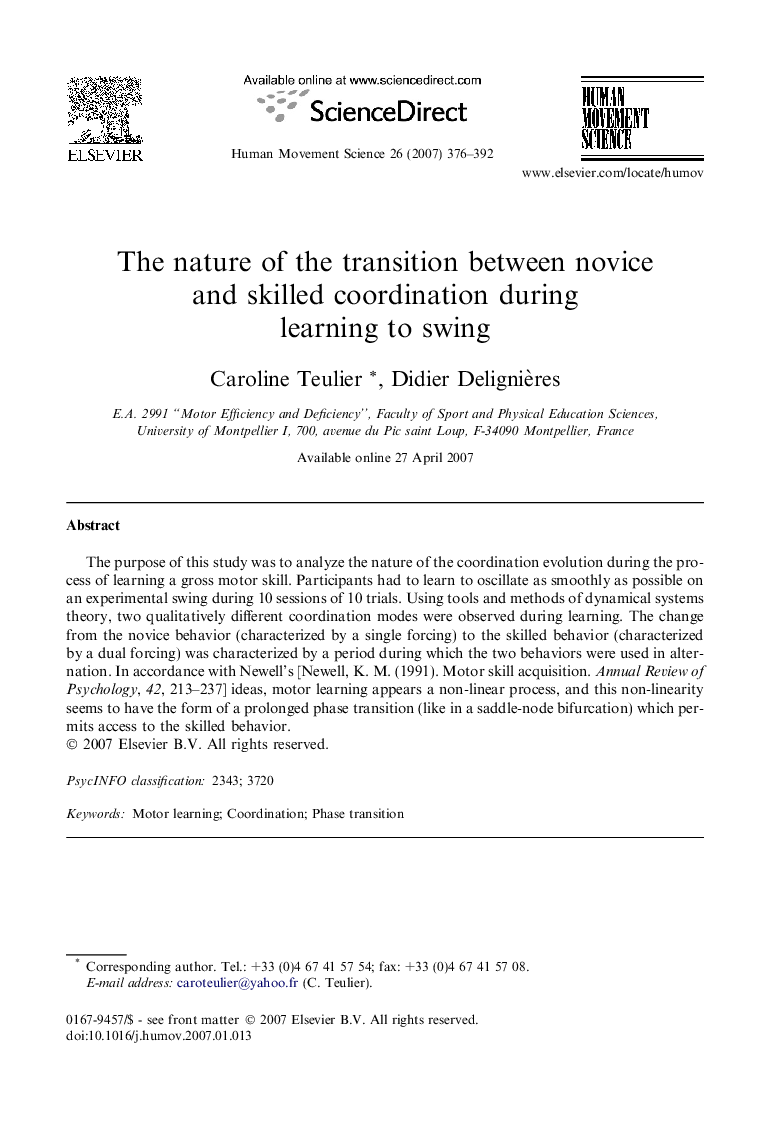| Article ID | Journal | Published Year | Pages | File Type |
|---|---|---|---|---|
| 928853 | Human Movement Science | 2007 | 17 Pages |
The purpose of this study was to analyze the nature of the coordination evolution during the process of learning a gross motor skill. Participants had to learn to oscillate as smoothly as possible on an experimental swing during 10 sessions of 10 trials. Using tools and methods of dynamical systems theory, two qualitatively different coordination modes were observed during learning. The change from the novice behavior (characterized by a single forcing) to the skilled behavior (characterized by a dual forcing) was characterized by a period during which the two behaviors were used in alternation. In accordance with Newell’s [Newell, K. M. (1991). Motor skill acquisition. Annual Review of Psychology, 42, 213–237] ideas, motor learning appears a non-linear process, and this non-linearity seems to have the form of a prolonged phase transition (like in a saddle-node bifurcation) which permits access to the skilled behavior.
